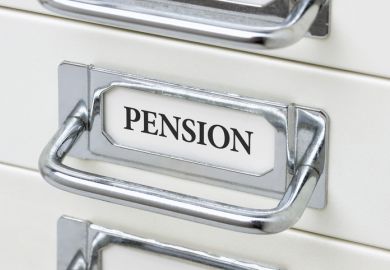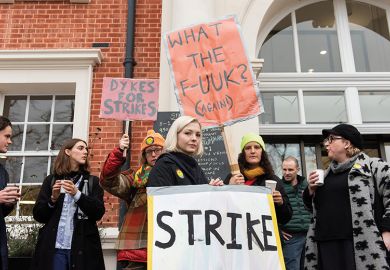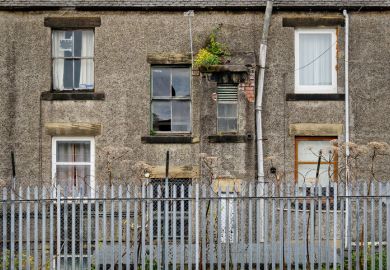Universities’ ability to fight off damaging funding reforms at Westminster may be hampered by a fresh bout of industrial action over pensions, experts have warned.
The University and College Union has said that strikes over the future of the Universities Superannuation Scheme are “inevitable” after employer-backed reforms that would make pensions less generous were approved. While Universities UK’s proposals will stave off massive hikes in employer and staff contributions, the UCU has warned that they will leave members thousands of pounds poorer each year in retirement.
But any moves towards industrial action would come at a delicate time for institutions, with ministers still debating how to respond to the Augar review’s recommendations on English higher education funding. Options include a cut in the tuition fee cap or the introduction of government-imposed minimum entry requirements for students.
The value for money that students are getting is already in the spotlight amid debate over universities’ continuing embrace of online learning options following Covid-driven campus shutdowns, and strikes now would amount to further disruption for undergraduates who – freshers aside – have already seen their on-campus learning significantly interrupted.
It would be the fourth round of USS-related walkouts in little over three years, with coronavirus lockdowns having also limited on-campus learning over the past two academic years.
Andy Westwood, professor of government practice at the University of Manchester, said that the prospect of industrial action was “both depressing and pretty badly timed”.
“For the whole dispute to flare up again just as long-term policy reforms and funding are being considered is an additional potentially damaging aspect of it,” he said. “I’m sure both sides would say that the timing can’t be avoided, but I just don’t know if that’s true.”
Diana Beech, chief executive of the London Higher group of universities, said another round of industrial action was “clearly concerning”.
“Having just emerged from 18 months of government-imposed restrictions to the on-campus experience, the last thing students need is yet more disruption to their learning,” she said.
However, Dr Beech, a former adviser to Conservative universities ministers, added that “while there is a distinct risk for those on the picket line of appearing insensitive to students’ plight – not to mention to those in other sectors or industries who have lost their jobs and incomes during the pandemic – it is also possible to see how any future strike action may be emboldened by wider protests against intergenerational unfairness brought about by the tax hike to cover the increasing cost of social care”.
Roger Seifert, professor of industrial relations at the University of Wolverhampton, said that employers were “divided and weak” on pensions reforms, while staff were “frustrated and depressed” after job cuts and pay freezes during the pandemic.
However, “it is less clear that members want to strike, despite their fury with vice-chancellors, given this exceptional year”, Professor Seifert said.
UCU general secretary Jo Grady said that the dispute was the fault of employers for “refusing to challenge a flawed valuation of the USS pension scheme which was carried out at the beginning of the pandemic as markets were crashing”.
“We are keen to prevent the sector facing widespread, disruptive industrial action, but employers must halt these cuts,” Dr Grady said. “There are months left to negotiate an acceptable outcome, and members will not forgive employers if they fail to make the most of the time available.”
Register to continue
Why register?
- Registration is free and only takes a moment
- Once registered, you can read 3 articles a month
- Sign up for our newsletter
Subscribe
Or subscribe for unlimited access to:
- Unlimited access to news, views, insights & reviews
- Digital editions
- Digital access to THE’s university and college rankings analysis
Already registered or a current subscriber?








